Category: Learn/Brainstorm/Try
-
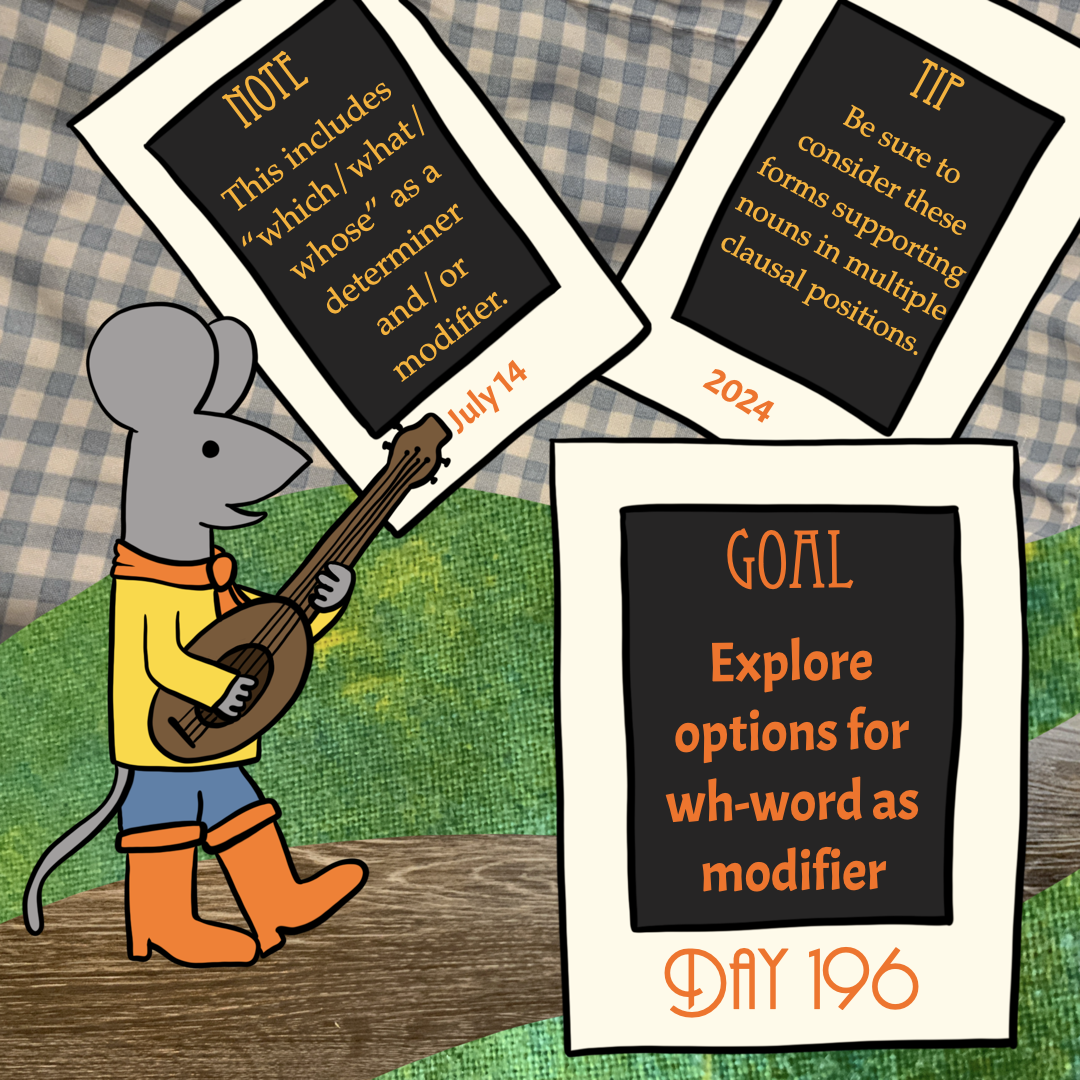
Day 196: July 14, 2024
Goal: Explore options for wh-word as modifier Note: This includes “which/what/whose” as a determiner and/or modifier. Tip: Be sure to consider these forms supporting nouns in multiple clausal positions. Work focus: Learn/Brainstorm/Try Expand your brainstorming on wh-questions by exploring options for wh-words as modifiers for a head noun, such as “which car” or “what mouse”…
-
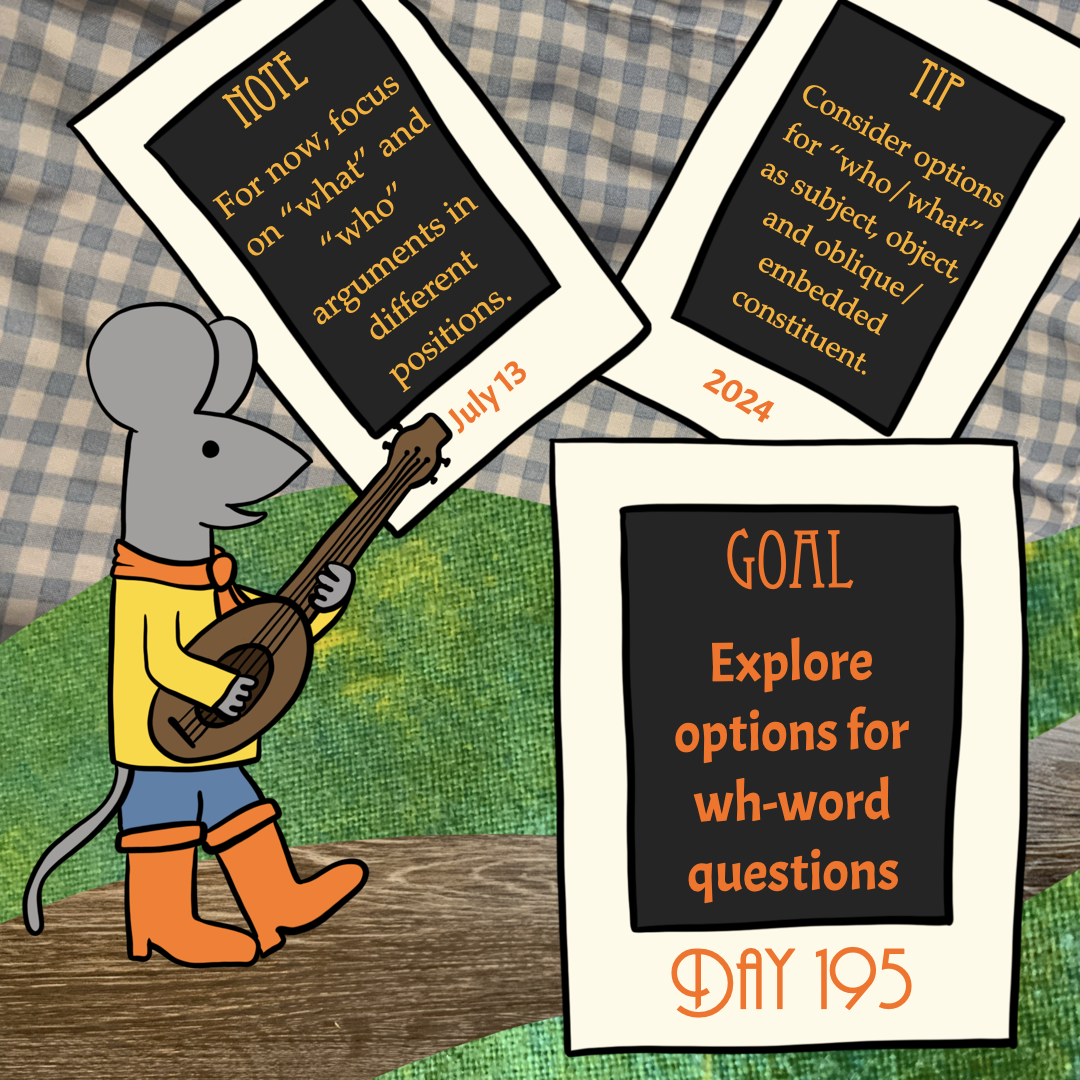
Day 195: July 13, 2024
Goal: Explore options for wh-word questions Note: For now, focus on “what” and “who” arguments in different positions. Tip: Consider options for “who/what” as subject, object, and oblique/embedded constituent. Work focus: Learn/Brainstorm/Try Today’s goal shifts from y/n questions to wh-word questions, specifically focusing on content questions that target nominal arguments. While a y/n question can…
-
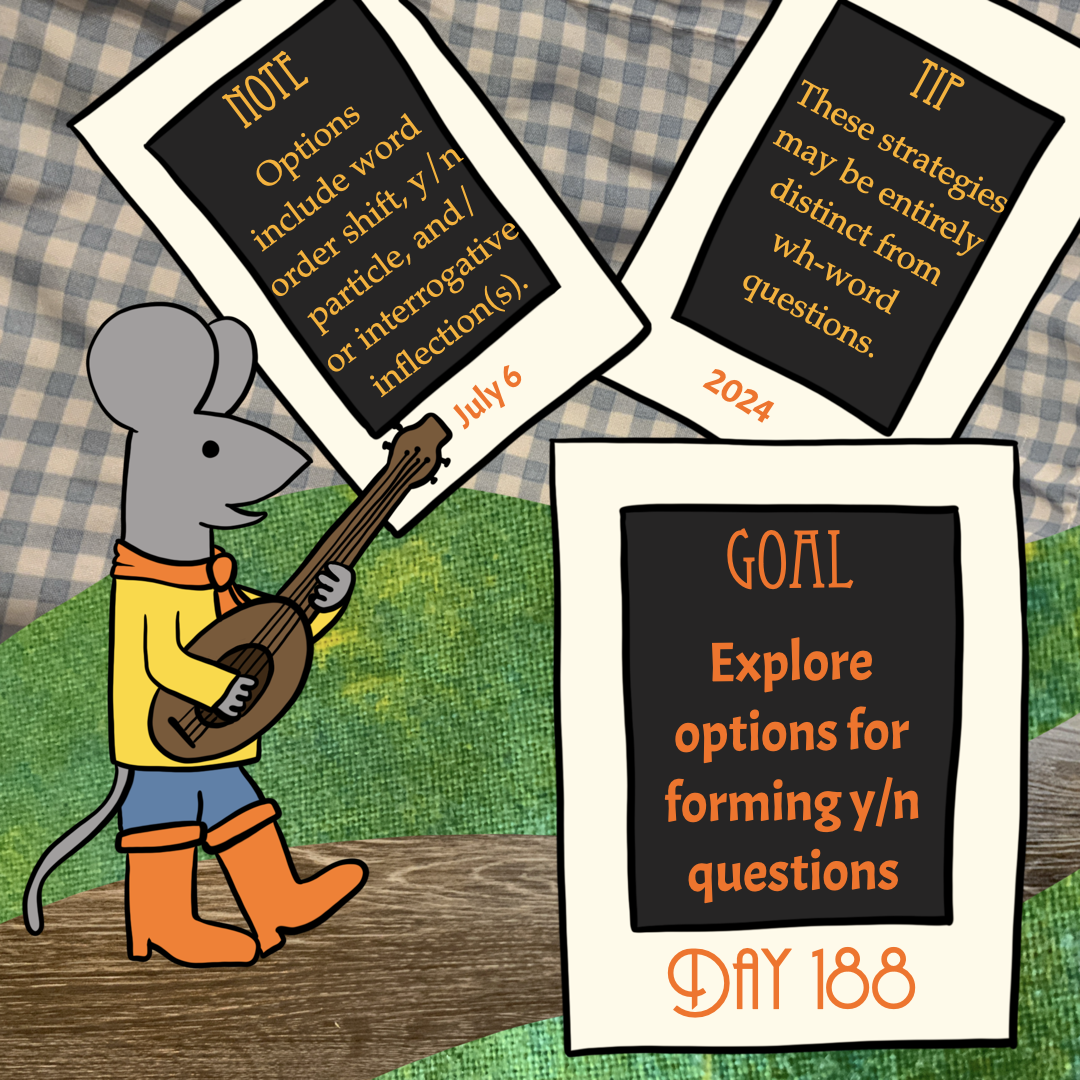
Day 188: July 6, 2024
Goal: Explore options for forming y/n questions Note: Options include word order shift, y/n particle, and/or interrogative inflection(s). Tip: These strategies may be entirely distinct from wh-word questions. Work focus: Learn/Brainstorm/Try It’s time to start thinking about questions! The first focus is on yes/no questions, or questions that can be answered with a simple “yes”…
-
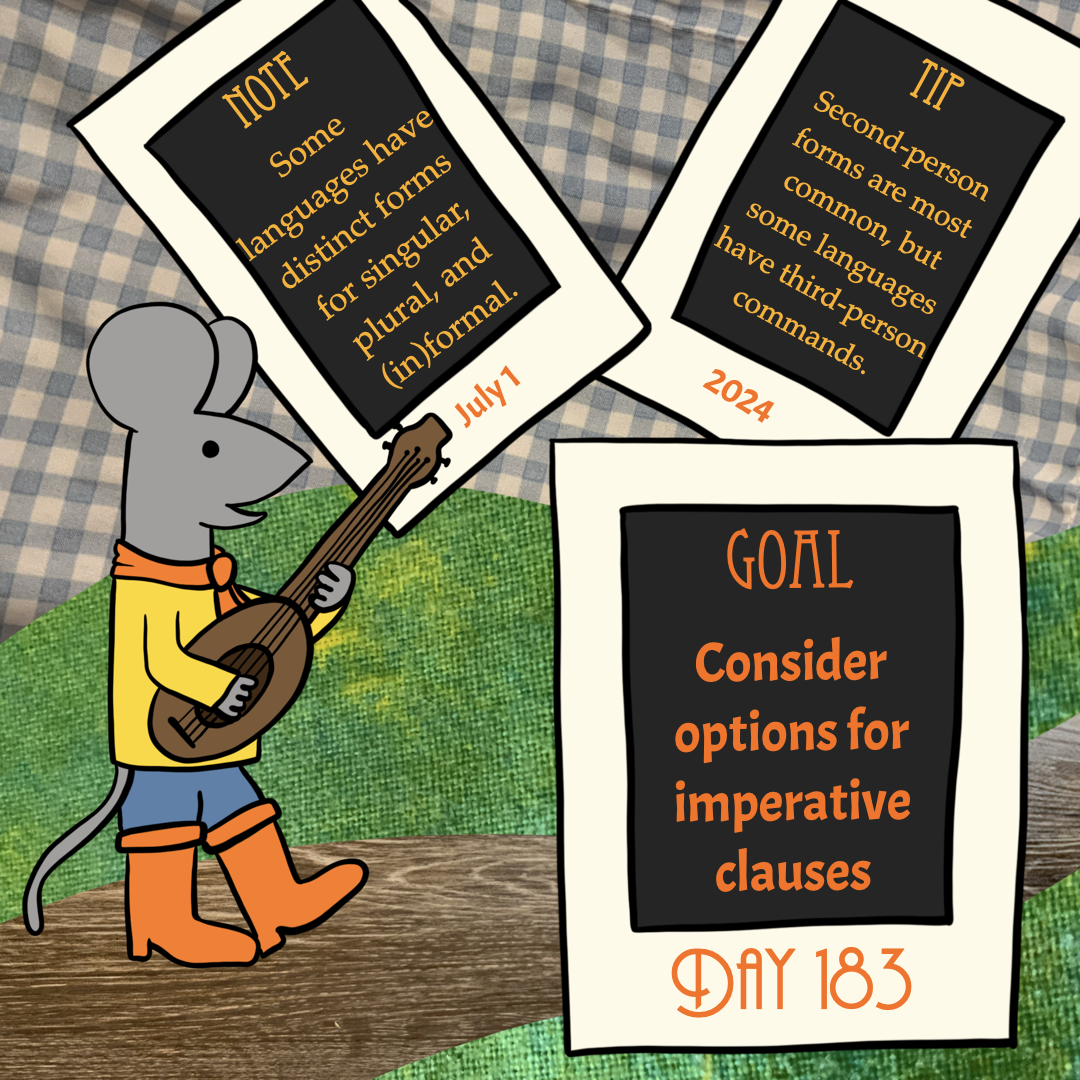
Day 183: July 1, 2024
Goal: Consider options for imperative clauses Note: Some languages have distinct forms for singular, plural, and (in)formal. Tip: Second-person forms are most common, but some languages have third-person commands. Work focus: Learn/Brainstorm/Try Today’s focus shifts to imperative clause structures! Take some time to explore how a variety of languages form imperative clauses to get some…
-
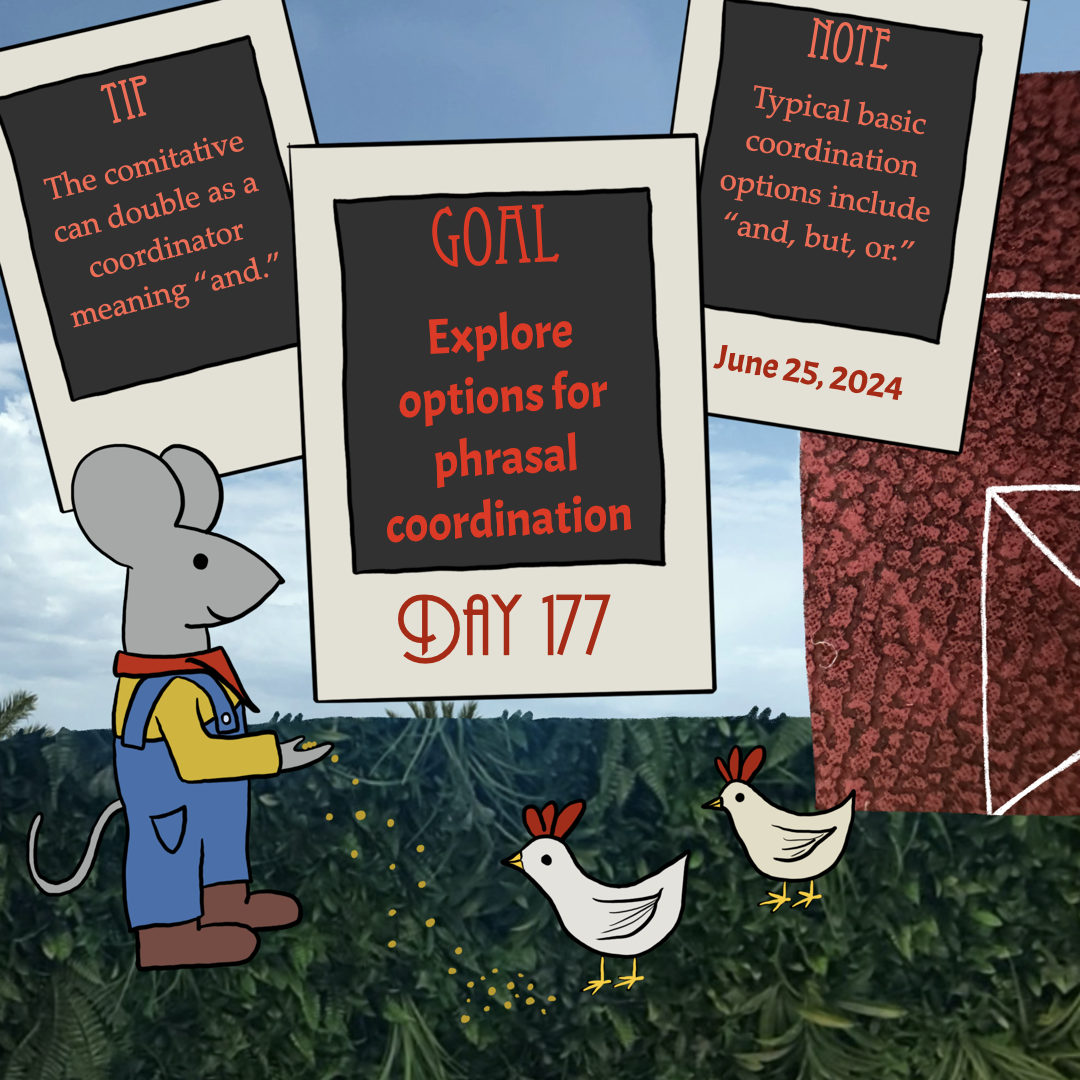
Day 177: June 25, 2024
Goal: Explore options for phrasal coordination Note: Typical basic coordination options include “and, but, or.” Tip: The comitative can double as a coordinator meaning “and.” Work focus: Learn/Brainstorm/Try Today’s goal shifts focus to coordination strategies, focusing specifically on phrasal coordination. The most common basic coordinating conjunctions include options for “and” and “or” (though you may…
-
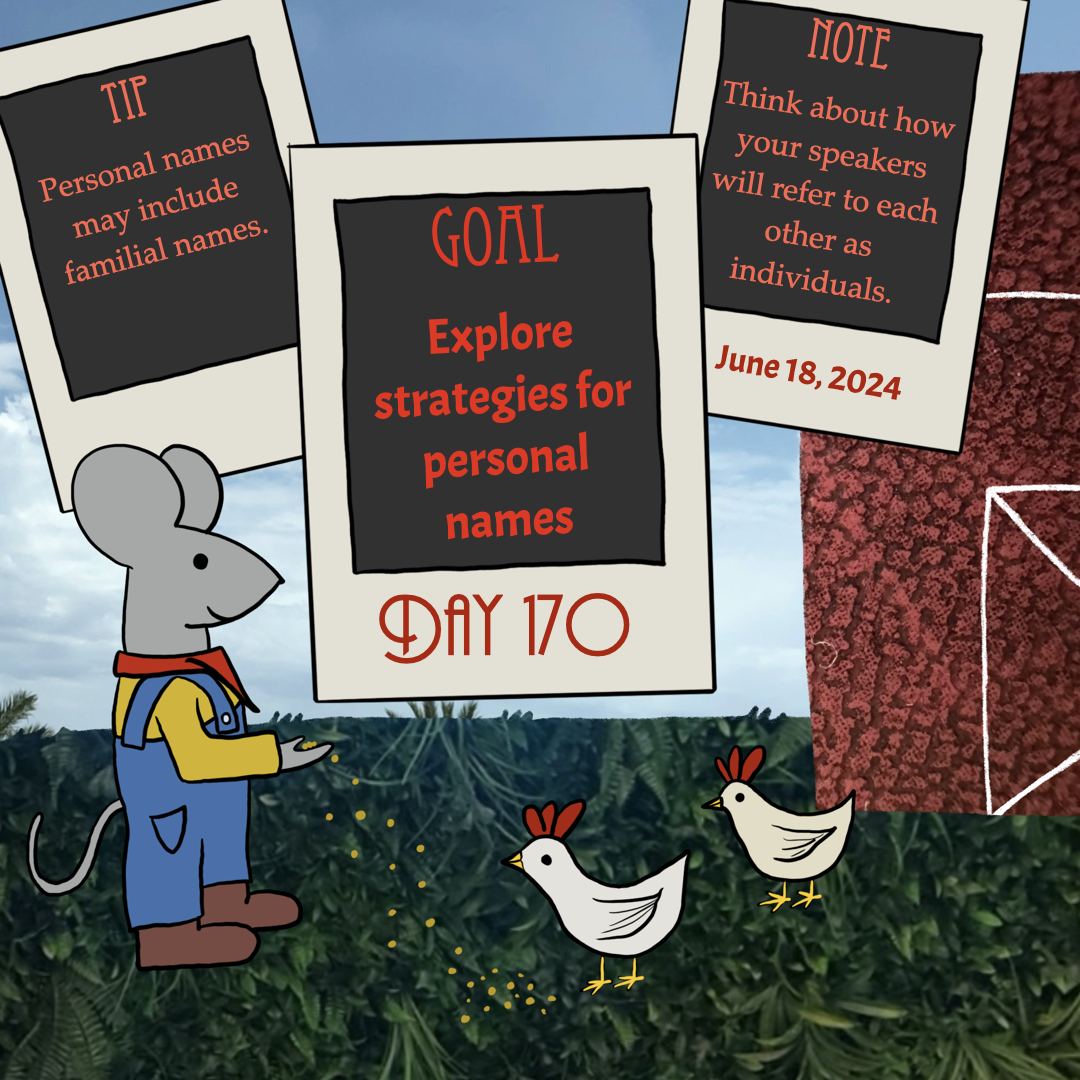
Day 170: June 18, 2024
Goal: Explore strategies for personal names Note: Think about how your speakers will refer to each other as individuals. Tip: Personal names may include familial names. Work focus: Learn/Brainstorm/Try It can be quite interesting to think about names and how your speakers will refer to each other and how they will identify one individual from…
-
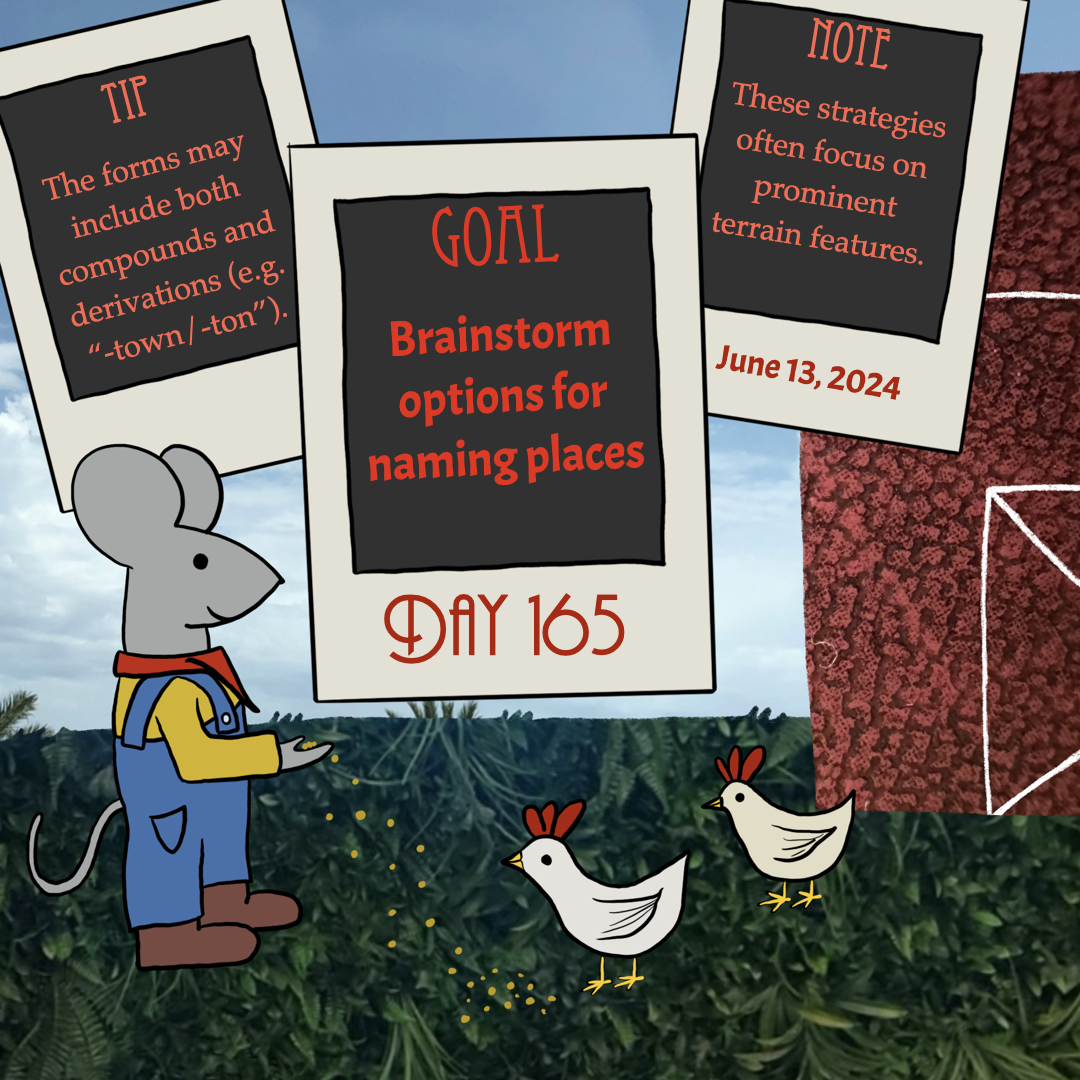
Day 165: June 13, 2024
Goal: Brainstorm options for naming places Note: These strategies often focus on prominent terrain features. Tip: The forms may include both compounds and derivations (e.g. “-town/-ton”). Work focus: Learn/Brainstorm/Try Today’s goal shifts the focus to place names. Use today to brainstorm ideas for how you might name places in your conworld. I encourage you to…
-

Day 161: June 9, 2024
Goal: Brainstorm options for measuring and marking time Note: Consider how your speakers divide time on a regular basis. Tip: Think about concepts like day, week, month, season, and year. Work focus: Learn/Brainstorm/Try Brainstorming options for measuring and marking time goes beyond having temporal adverbs like “now” and “then” in your language and asks how…
-
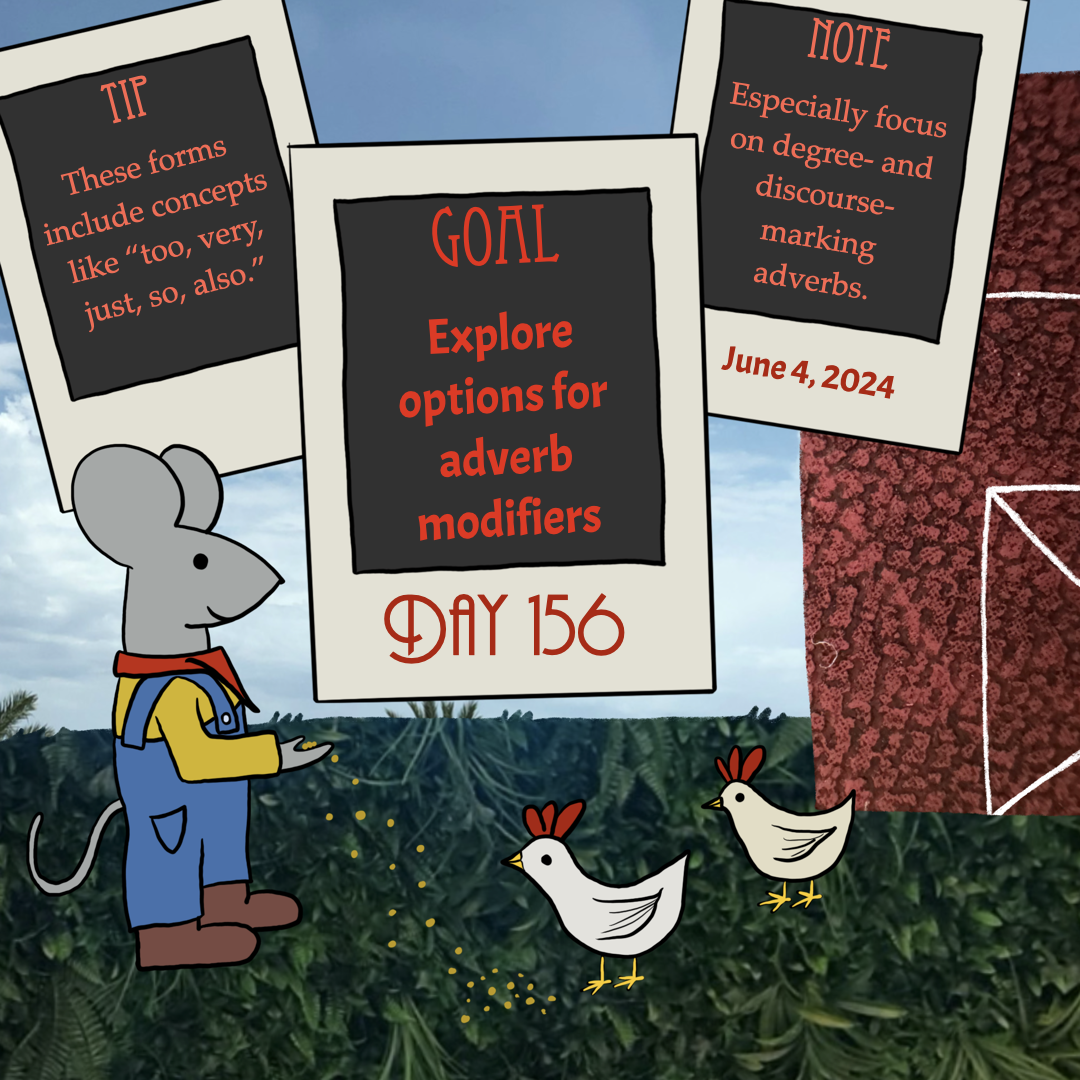
Day 156: June 4, 2024
Goal: Explore options for adverb modifiers Note: Especially focus on degree- and discourse-marking adverbs. Tip: These forms include concepts like “too, very, just, so, also.” Work focus: Learn/Brainstorm/Try Today’s goal extends the focus on creating adverbs in your conlang. Explore options for adverb modifiers, some of which may be basic forms. Specifically, focus on the…
-
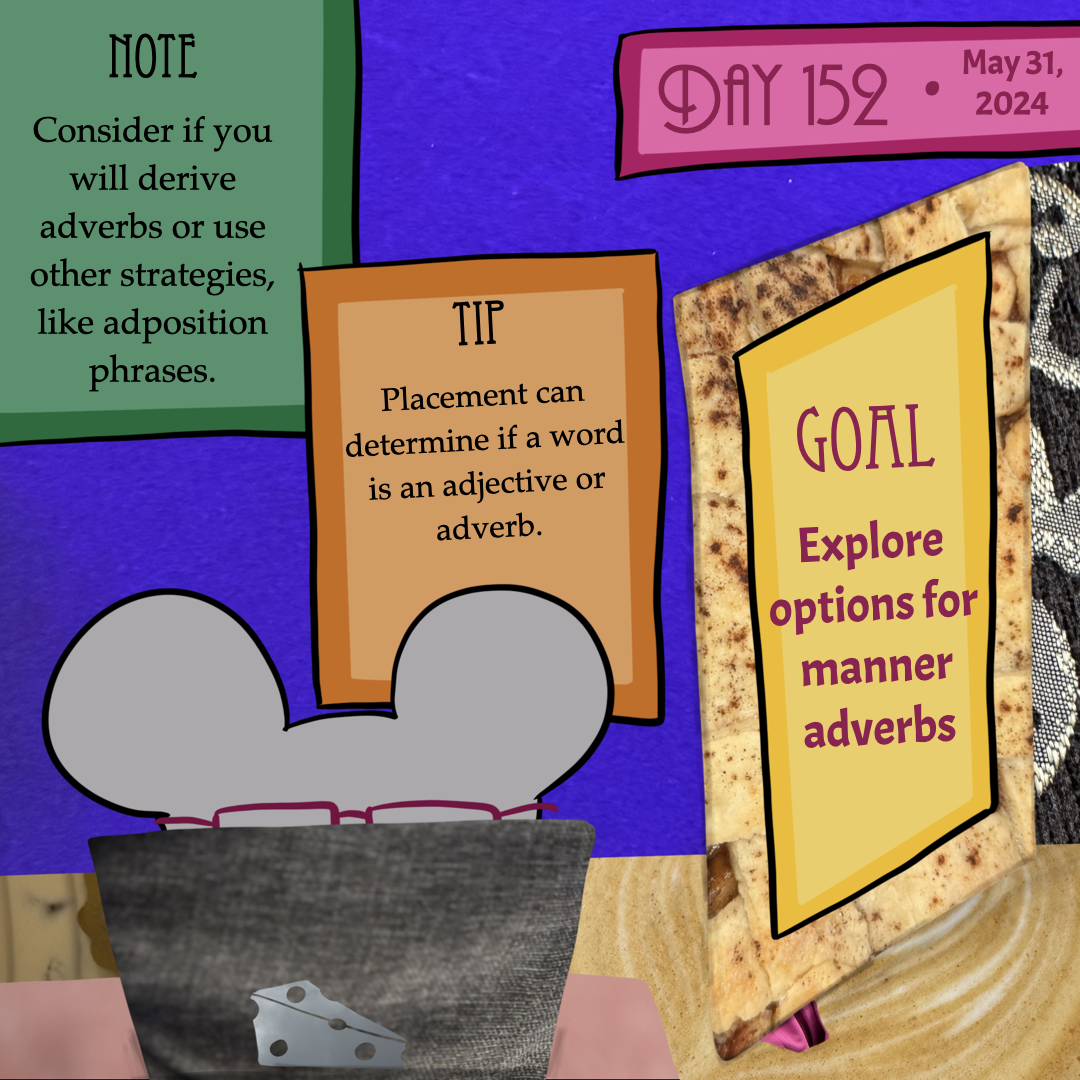
Day 152: May 31, 2024
Goal: Explore options for manner adverbs Note: Consider if you will derive adverbs or use other strategies, like adposition phrases. Tip: Placement may determine if a word is an adjective or adverb. Work focus: Learn/Brainstorm/Try Many manner adverbs are not basic roots. They are often compounded or derived forms, or they may even be best…